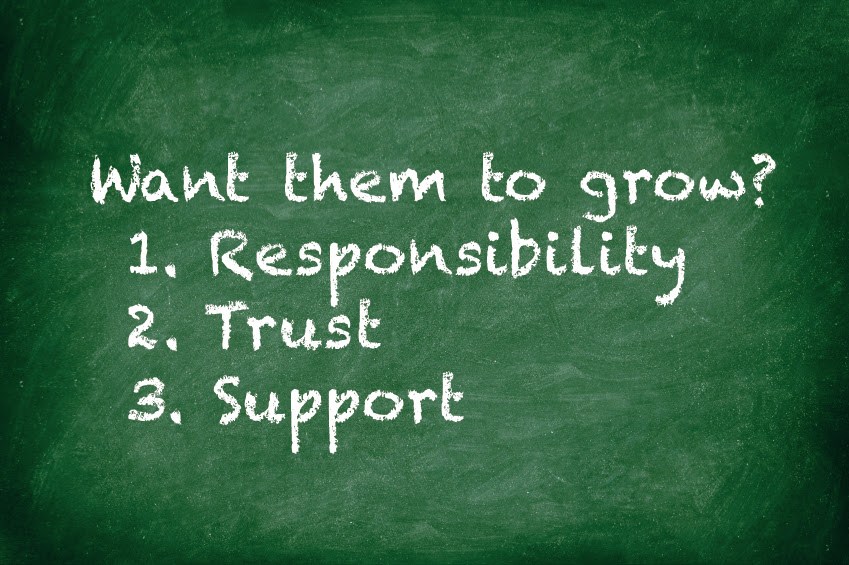DO THESE 3 THINGS AND WATCH YOUR PEOPLE GROW
 Monday, August 25, 2014 at 3:49PM
Monday, August 25, 2014 at 3:49PM 
Few things help an individual more than to place responsibility upon them and to let them know you trust them.
A leader's number one job is to grow and develop their people. Do these three things and watch them respond.
1. Give them responsibility. I encourage leaders to delegate all of the tasks that someone else in the organisation can do and to focus just on just the tasks that only they can do. Work out what you are going to get someone else to do. Be specific about your expectations, the outcome required and the timeframe.
2. Trust them. This will take courage. You have to accept the risk that they may not get it 100% right. Unless people are given opportunities to shine they won't grow, so take the risk.
3. Support them. Set them up for success, not failure. Make sure that they have everything they need to do the job (time, skills, resources). Also offer to guide them as they go if they need it.
To be honest, this is not going to work every time with every person. You actually have to risk failure in order to go forward. In the majority of cases people will accept the responsibility and rise to the occasion. They grow in confidence and self belief. You get a more capable, engaged team. Everyone wins.
 leader,
leader,  leadership,
leadership,  leadership tips
leadership tips 



